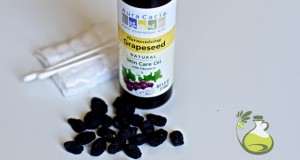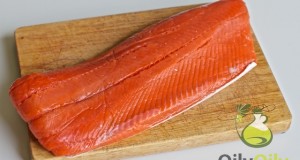
Photo credit: flickr
What is the difference between canola oil vs vegetable oil? Can you use canola oil instead of vegetable oil? Let’s find out the truth about these oils, compare canola oil vs vegetable oil and choose what to use.
Contents
Canola oil
Canola oil is extracted from the seeds of the canola plant. It is vegetable oil as canola is a vegetable belonging to the same botanic family as cabbage, broccoli and cauliflower. Canola was selectively bred from rapeseed, but it doesn’t contain a high and toxic quantity of erucic acid. So canola oil is not harmful which is recognized by the U.S. Food and Drug Administration. Canola oil is always refined; it is almost tasteless, light in texture and color.
SEE ALSO: What is the Best – Canola Oil vs Sunflower Oil
Vegetable oil
According to Wikipedia vegetable oil is derived from various plants. It can be made of corn and peanut, sunflower and safflower oils. More often, however, soybean oil is called vegetable oil, especially when mixed with some other oils. Vegetable oil is usually refined and similar to canola oil in appearance and taste.
Fat content
Canola oil possesses a very beneficial fat profile. Its level of saturated fats is the lowest among all vegetable oils. It is rich in monounsaturated omega-9 fatty acids, while vegetable oil is usually high in polyunsaturated fatty acids, which are necessary for the body but not in such a quantity. Canola oil has omega-3 fatty acids and this distinguishes it from other vegetable oils. Omega-3 fatty acids are essentially needed for our health as they render the anti-inflammatory effect. The ratio of omega-6 to omega-3 fats is 2:1 in canola oil, a very good one for our nutrition according to Wikipedia.
There are 120 calories in one tablespoon of canola oil as well as of vegetable oil. So the main difference between these oils is the number of mono-, polyunsaturated and saturated fats. And canola oil has the prevalence.
Smoke point
If we compare the smoke point of canola oil vs vegetable oil we can see that both oils can be used for any cooking, including deep-frying and baking because of their high smoke point.
RELATED: Advantages and Disadvantages of Olive Oil vs Canola Oil
Can you use canola oil instead of vegetable oil?
In fact, canola oil is vegetable oil as well and can be used to replace vegetable oil in any recipe. You may stick to the same cooking process as with any other vegetable oil. Canola oil is perfect for deep frying and sautéing. It suits for baking. It has almost no taste, so it won’t add additional flavor to your dish. Since canola oil has a bit better fat profile it may be considered even more preferable for cooking.
Considerations
Canola oil is a perfect alternative to vegetable oil and its uses are very wide. However, you should be very attentive choosing canola oil. Look for canola oil of famous brands. Try to find organic non-gmo canola oil and expeller-pressed one, which is extracted without any chemical solvents used. The cheapest canola oil cannot be the best one as it is obviously GMO and pressed chemically.
 Oilypedia.com – Benefits And Uses Of Supplemental and Essential Oils
Oilypedia.com – Benefits And Uses Of Supplemental and Essential Oils 



Pingback: Canola Oil vs Vegetable Oil: Can You Use Canola Oil instead of … | Organic Rapeseed Oil